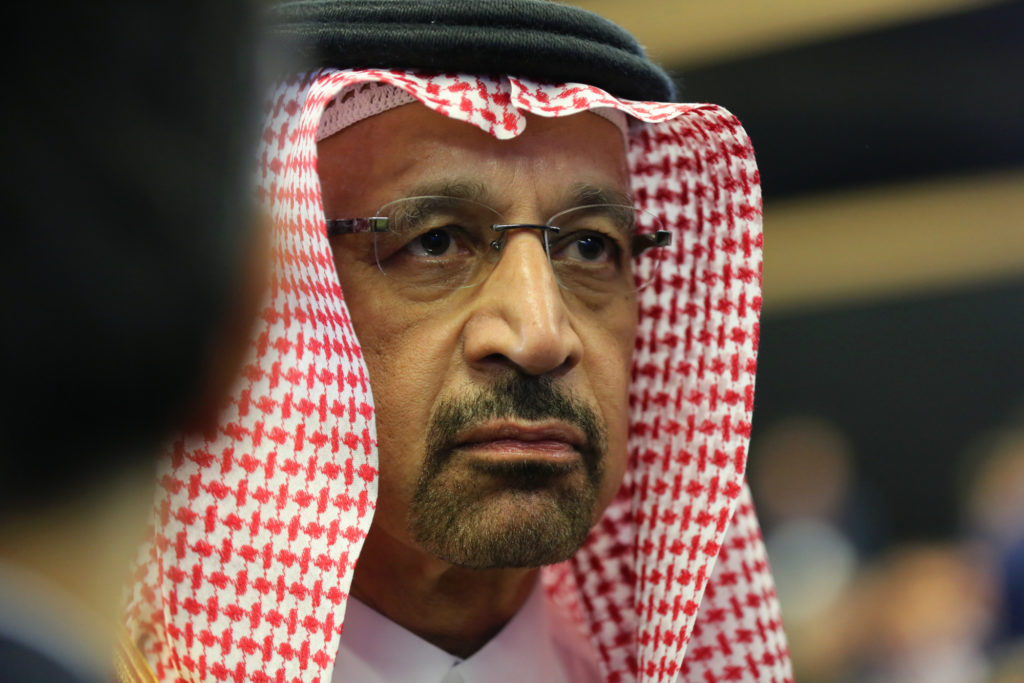
Oil gave up some earlier gains after Saudi Arabia’s oil chief indicated OPEC and allied producers have yet to reach consensus on whether supply curbs are in order.
In an interview Tuesday, Saudi Energy Minister Khalid Al-Falih walked back recent calls for 1 million barrels of cuts to daily output by OPEC and other major exporters. The comments came just days after an agreement between Saudi Crown Prince Mohammed bin Salman and Russian President Vladimir Putin appeared to smooth the way for a production accord when OPEC gathers in Vienna later this week.
“It’s premature to say what will happen” in Vienna, Al-Falih said in an interview at a United Nations climate-change conference in Poland. “We need to get together and listen to our colleagues, hear about their views on supply and demand and their projections of their own countries’ production.”
The note of caution combined with news that the Saudis had slashed the price they charge to Asian customers to dent traders’ optimism. Crude prices dropped in London and New York to trade nearly flat for a time on Tuesday.
“It’s not a good price signal,” said Bob Yawger, director of futures at Mizuho Securities USA in New York. “Either demand is bad or all the talk about cutting production is just lip service.”
West Texas Intermediate for January delivery added 36 cents to $53.31 a barrel at 10:49 a.m. on the New York Mercantile Exchange, after rising 3 percent earlier in the session. Total volume traded was about 49 percent above the 100-day average.
Brent for February settlement gained 79 cents to $62.48 on London’s ICE Futures Europe exchange. It was at an $8.92 premium to WTI crude for the same month. Brent was set to produce a so-called “death cross” on Tuesday, a bearish technical signal when its 50-day moving average falls beneath its 200-day average.
Al-Falih’s comments could be “more a message towards his Russian colleagues than to the market,” said Hans van Cleef, senior energy economist at ABN Amro Bank NV. “For every barrel they don’t have to cut, someone else will have to, and they’ll make more money on it. It’s part of the whole negotiation process. It’s quite uncertain still what the outcome will be.”
Other OPEC members are still pushing for curbs. United Arab Emirates Energy Minister Suhail Al Mazrouei reiterated that an output reduction is required. Iraq’s oil ministry said the nation is seeking balance in the market.
Meanwhile, prices are getting a boost from an unexpected region. Earlier this week, Canada’s Alberta province announced that it would cut production by 325,000 barrels a day to ease a regional glut. The unprecedented step will reduce production of raw crude and bitumen by 8.7 percent starting in January until the levels of excess oil in storage are drawn down.
Other oil-market news: Gasoline futures rose 2.3 percent to $1.4644 a gallon in New York. American crude inventories probably fell 2.5 million barrels last week, according to a Bloomberg survey before government data that has been delayed until Thursday. Argentina’s YPF SA plans to spend $2 billion with Malaysia’s Petronas to move the Vaca Muerta shale venture to full-scale development